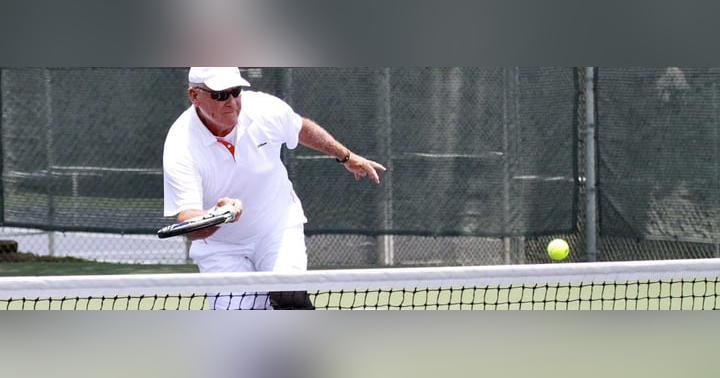5 ways to improve confidence in racquet sports players

Confidence is best defined as the beliefs an individual has towards their own ability to successfully execute a specific task in order to achieve the desired outcome. For example, a tennis player who has confidence in their serve steps up to the line believing that they are going to hit their spots and ace their competitor regularly. Having confidence in your own ability is what separates the best athletes players from everyone else. Confident sportspeople will enter every match, or key moment within a match, believing that they are going to come out on top and won’t panic when they fall behind.
However, as is the case with all other aspects of the mental side of the sport, confidence can also have a detrimental effect on a players ability. Less experienced players can often suffer from a lack of confidence as they may doubt their ability, or have never been in a similar situation so are unsure how to react. Below we’ve highlighted five ways tennis, and all racquet sports players, can boost their confidence to help improve the mental side of their game.
1. Set realistic expectations
Setting high expectations is crucial in helping to boost a players confidence, however, it is vital that these expectations are achievable and manageable at the same time. It’s not quite as simple as expecting to win and play well every match. If a player sets expectations that they cannot reach their confidence will suffer as they begin to doubt their ability to achieve their expectations. In order to help boost confidence, it’s important to set manageable goals and expectations. By setting realistic goals for an upcoming match or competition a players confidence will continue to grow as they achieve the expectations they set. As a result of this their overall performance will improve which in turn will further boost their confidence.
2. Focus on the present
Another way to help boost a players confidence is to help them move on from past experiences and focus on the present. With all racquet sports, both players need to be 100% focused on the present to ensure they are performing to the best of their ability. We’ve previously spoken about how to help players drop any emotional baggage they are carrying from past experiences and take each match at a time. If a player continues to dwell on a missed shot or lost match it’s likely that their future performances will suffer.
Additionally, it’s important that players don’t focus too much on trying to predict the future and staying one step ahead of their opponent. You cannot control where the ball will land or how your opponent will react in certain scenarios, therefore, total concentration is required in every situation to make sure you are giving 100%.
Each player will deal with it in a different way but by ‘getting into the zone’ and focusing 100% of your attention to the match at hand, players with low confidence don’t have a chance to overthink past of future situations.
3. Match experience is far more important than just practice
The difference between competitive confidence and a players confidence during practice is huge. A player can look like a star in practice and have great confidence in their ability, however, this can all change when they're presented with a real competitive situation.
During training, players are able to play with a sense of freedom that can often be lost during a match. The sense of freedom is due to the fact there is far less to lose during training. If you missing a shot when practicing it doesn’t matter, however, missing a shot during a match could be the difference between winning a losing. Players with more match experience will be far more confident when faced with certain situations as they may have experienced a similar scenario in the past.
4. Face your fears
Fearing failure is natural in all competitive athletes, the important part is learning how to face your fears and deal with disappointment. In order to face your fears, you must first dig deep, identify them and then picture how you would react. How will you respond to missing a shot? Are you able to cope with defeat and learn from the experience?
Being able to face your fears and deal with the consequences are vital in helping to improve an athletes performance. Realizing and accepting that you can’t win every point or match is not a lack of confidence, its realistic thinking which as previously mentioned is a key part of helping athletes to succeed.
5. Confidence must be long lasting
True confidence must be long-lasting and not disappear after a disappointing result or moment. Anyone will get a short-term boost of confidence after playing well or winning but it’s the best athletes who are able to keep hold of this confidence, even when they aren’t playing well. The top players have gained their confidence from positive results and kept hold of their confidence after a defeat because they understand that true confidence is long-term and not impacted by immediate results. Racquet sports players spend their entire career building their confidence, so why should all that confidence suddenly leave as soon as they drop a shot or lose a match.
Confidence is a mindset
Confidence is not a direct result of the amount of time a player spends practicing and training. Of course, it’s true that high-quality training and previous match experiences have a direct effect on a players confidence, but it’s not that simple. Someone who spends hours in training can still doubt their ability when competing, and alternatively, someone who doesn’t work hard during practice can still have all the confidence in the world in a match situation. Ultimately confidence is a mindset, that helps to give you the mental edge to help you beat the person standing on the other side of the net.
We’ve developed a series of audio tracks and blogs to help players of all ability access the necessary tools to give them a mental edge over the competition.











